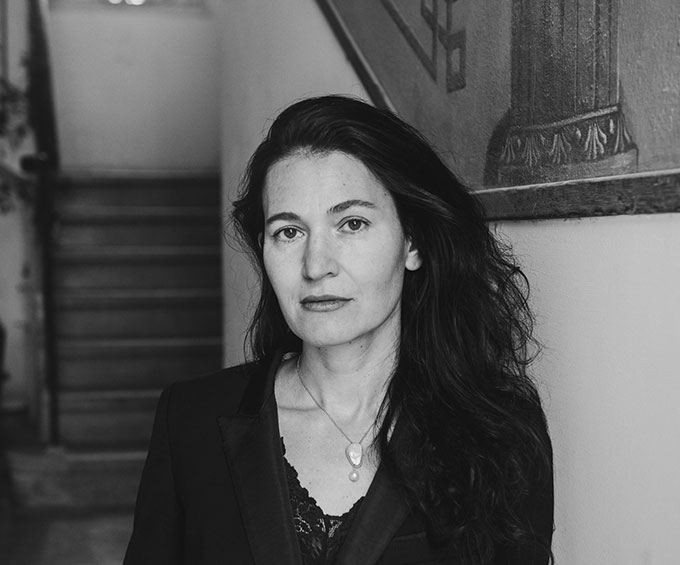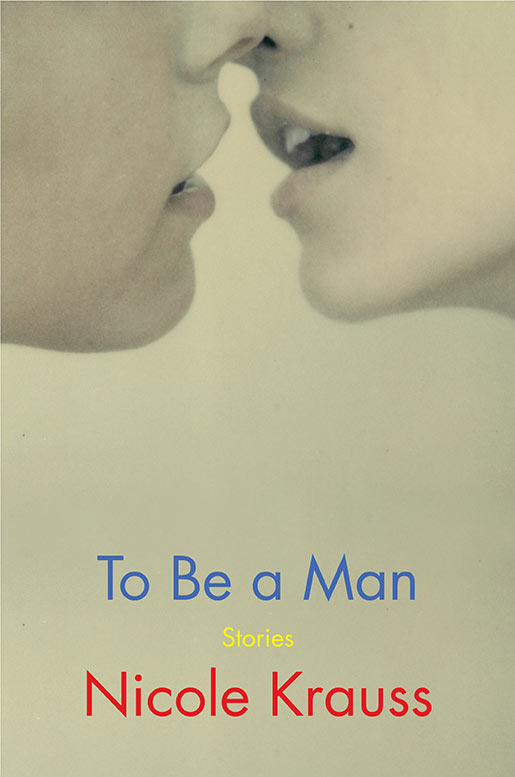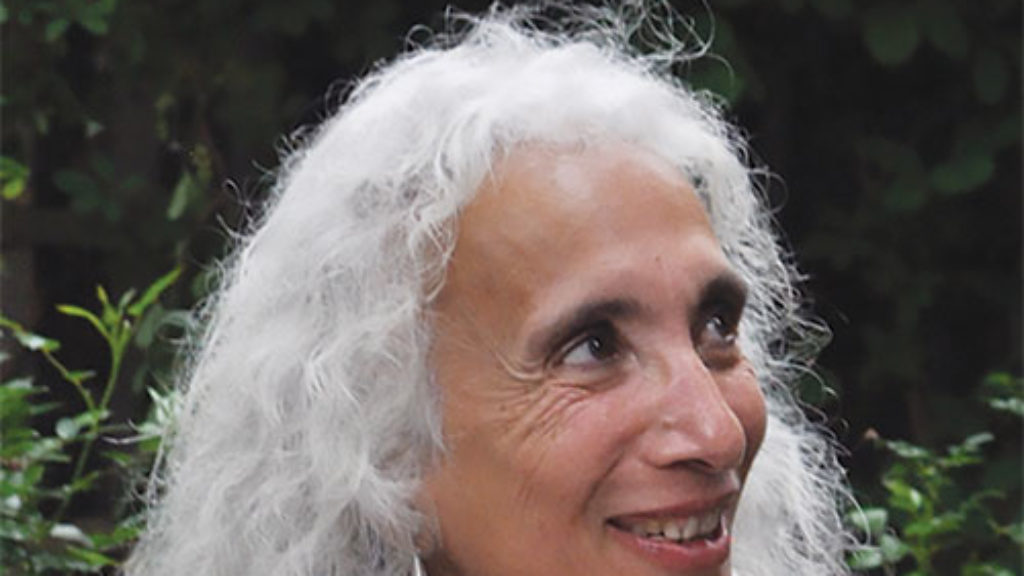Infinite Mirrors
In the third story of Nicole Krauss’s new collection, a woman, mourning her father’s death, travels to Tel Aviv to stay in an apartment she hadn’t known he kept. Upon awaking there, she’s startled to find an elderly man wordlessly sharing the space with her. At first, we wonder if the father’s ghost has returned. But he’s real enough. In fact, he sleeps in the “narrow bed,” which the narrator suddenly realizes was destined to be hers. She’s resentful, curt, and he, in calm response, cooks her delectable dinners and washes her clothes. Curious, she follows him through the darkening streets until, as if she were still a child, she climbs a tree to spy on his visit to a woman.
In the apartment, she happens upon a picture of her father “even younger than I am now” and muses that it is as if “we were born, one after the other, to occupy the same spot.” In another photograph, her father, relaxed and bare-chested, crouches on a rock:
Now the familiarity of his face, which is also my face, begins to feel even stranger, because this relaxed young man has so little to do with my father, who was disciplined and rigorous even in the pursuit of his pleasures. In the last photo, his arms are thrown out, and he is laughing in a desert that stretches behind him forever. It fills me with longing, as if I, too, had been there long ago, or as if part of me goes on being there, or maybe it’s just the feeling that I would give anything to meet him there, to stand face to face with him, a mirror image of the desert stretching behind me forever.
The face of her father, rendered strange by his visible joy, elicits the narrator’s longing not only to be “face to face” with him but to be graced with an endless horizon, “the desert stretching behind me forever.” The narration of this quiet, meditative story switches at the end to future tense: “the sea will darken, and the rain will fall . . . I will get used to stepping over the stranger on my way to the kitchen because that is the way one lives, casually stepping over such things until they are no longer a burden to us, and it is possible to forget them altogether.”

Krauss’s frequent philosophical turns are often compelling without being entirely clear. The title of this story, “I Am Asleep but My Heart Is Awake,” is a famous line from Song of Songs (5:2) describing a young woman who dreamily awaits her lover. When I asked Krauss about the meaning of the line to her in an event on my university campus, she said that the paradox of the phrase resonated with another famous line of Hebrew poetry, Judah ha-Levi’s, “My heart is in the East, yet I am in the utmost West,” a sense of being both here and there—of being ungrounded in both the landscape of diaspora and that of Israel, of sleeping while being awake.
In her 2017 novel Forest Dark, a writer who happens to be named Nicole says, “the idea of being in two places at once goes back a long way with me,” counting among her earliest memories the sensation of being at once in her parents’ bedroom and broadcast on the TV. Years later, Nicole feels, when she steps into her apartment, that she is already there, both herself and a stranger.
The penultimate tale in To Be a Man, “The Husband,” takes a different approach to the arrival of a stranger in Tel Aviv. It begins “the way,” she writes later in the piece, “stories so often begin, stories of everyday life onto which is sprung a sudden intrusion.” A husband arrives. But who is he?
Tamar is listening to her mother, who is calling from Israel, while eating lunch at her desk on the Upper West Side. She “settles in for the story, just like she has for countless of her mother’s stories over the years: often long, usually funny or absurd, sometimes rudderless tales whose only point was to keep Tamar attached to the distant life of her family.” Tamar’s father had died of a heart attack five years earlier, and now social services schlepps in a capital-H Husband “that their mother has never lost!”—and yet mysteriously accepts. As in “I Am Asleep but My Heart Is Awake,” Krauss captures the feeling of running backward and forward, of recognition overlaid with misrecognition, of familiarity sharing a bed with strangeness (she’s also funny).

The narrator of the titular and final story, “To Be a Man,” a recent divorcée whose grandparents survived the Holocaust, dubs her lover “the German Boxer” and disarmingly, disturbingly admits that she likes “being made to feel physically small next to a man.” The revelation of the title, however, comes not from her reflections on her lover but on her sons: “To become a man in this country was to become a soldier.” She sees “that sooner or later the time will come when [their] smallness and thinness will be overwritten, subsumed by mass, and the boys they are now will disappear, buried inside the men they will become.”
Krauss wrote the stories in To Be a Man over two decades, and it is not one of those collections that reads like a novel or is tightly thematic. Some stories, such as the first, “Switzerland” or the seventh, “Amour,” open with a wide temporal sweep and a clearly middle-aged narrator: “It’s been thirty years since I saw Soraya” or “I knew her when we were young, and then we lost touch for decades.” In stark contrast, “End Days” follows young characters like the shorts-wearing Californian Noa, who stumbles into fleeting friendships with a broad-backed bride and a nervous young rabbi who is officiating over the giving of the get in her parents’ divorce. And yet, there is a distinctive voice and set of concerns that run through these stories. Krauss’s delicate prose, portraying melancholy, solitary characters, repeatedly captures moments of multiple-ness, moments when time seems to move in more than one direction. With the watery, allusive closing lines of To Be a Man, Krauss evokes this appealing sensation of the loose thread, the untidy ending.
Suggested Reading
Distant Cousins
None of these four novels by American Jewish writers is fully at home in Israel—they’re more like Mars orbiters than rovers.
Going Public
The Jewish Jane Austen, or better?

Mastering the Return
Embedding biblical allusions in her descriptions of pagan practices, Tova Reich in her new novel seems to suggest that the world is so entangled that there is no space between the sacred and profane.

Reader, I Adopted Him
Maya Arad's latest work is minor literature in the sense that Jane Austen—a model for Arad—is minor because she focuses on human character rather than on the Napoleonic wars and the religious crisis of the Enlightenment.
Comments
You must log in to comment Log In